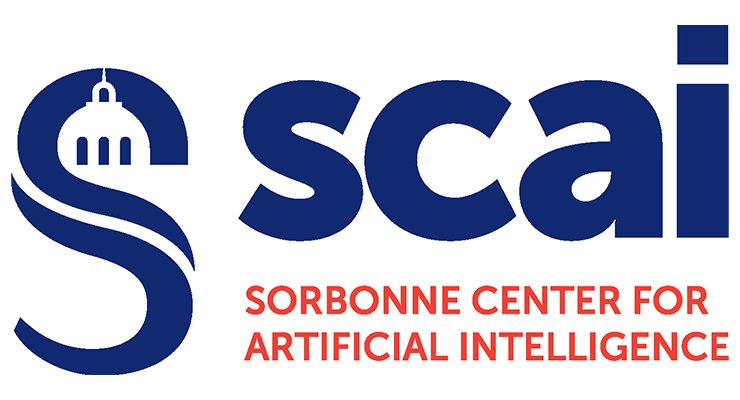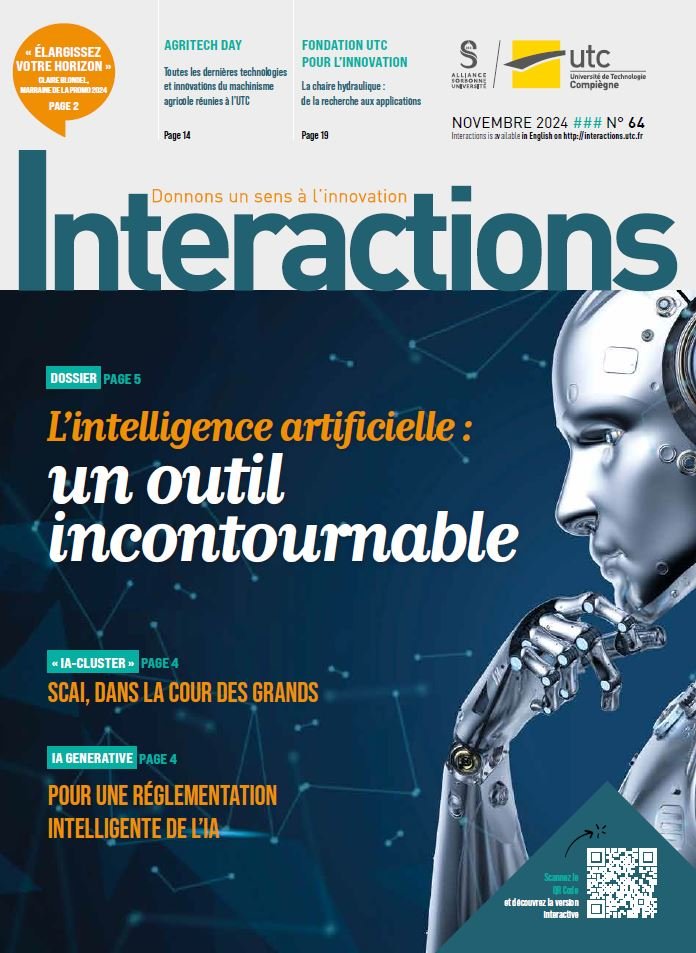SCAI, in the big league

Gérard Biau, Director of the Sorbonne Center for Artificial Intelligence (SCAI), an institute of the Sorbonne University Alliance created in 2019 as part of the national AI strategy, describes the genesis of the project and its evolution up to the success encountered during the AMI “IA-Cluster”.
“With the launching of the SCAI, the initial aim was to bring together existing forces, hitherto dispersed within the establishment but also among Alliance partners, by creating an AIspecific entity that would lend it greater visibility. The aim was twofold: firstly, to rationalize resources in terms of both research and training, but also to scale up is activities in order to carry weight in the AI field and try to win attribution bids for national, regional or European projects”, he explains.
A successful gamble indeed, since SCAI, with the PostGenAI@Paris program — in which UTC is fully involved — was one of the 9 winners of the AMI “IA-Cluster” and was since renamed Sorbonne Cluster for Artificial Intelligence. This success is due to the Alliance’s ability to mobilize forces in a wide range of fields, ranging from engineering (with UTC, for example) to social sciences, mathematics and biology. But it’s not the only one, since SCAI has won a number of calls for projects, some funded by the ANR, such as the AMI CMA, Sorbonne.AI, a DIM project funded by the Region or a Cofund, Sound.ai, funded by the European Union.
According to Gérard Biau, this success is shared by all the Alliance’s partners, including UTC, which has inherited four of the 21 Collaborative Acceleration Projects (PACs) and is leading two of them. Another sign of the cluster’s growing credibility is the fact that new players such as the Université Panthéon-Assas, the Cnam, Science Po and the Cour de cassation (French High court of Appeal) have joined the cluster.
Science, research, training and innovation are the pillars on which SCAI is built. Among the objectives pursued with PostGenAI@Paris? “The first concerns the implementation of research projects in the form of PACs involving two promoters, if possible from two different establishments, as well as industrialists who, to date, have contributed 30 million euros to the programme. These projects will also include training initiatives. The transmission of knowledge is important in a constantly evolving field. We have chosen to focus on generative AI, the most up-to-date technology and to apply three major thematic areas: disruptive technologies, future health and resilient societies. The first, disruptive technologies, revolves around major language or industrial safety models, for example. The second, a desirable future, revolves around biology, the environment and medicine. Finally, the last theme, resilient society and education, is more concerned with the human and social sciences, digital humanities, law and so on. The second stage will be to shift up a gear and seek out international projects,” concludes Gérard Biau.
MSD




